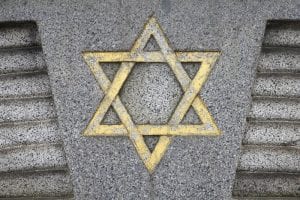Orthodox Judaism Funeral Service Rituals

Orthodox Judaism requires strict adherence to sacred funeral and burial practice. Orthodox Jews believe that a person’s body will be resurrected and that there is a physical life after death. The resurrection will occur after the coming of the Messiah, and in the interim, righteous souls receive the pleasures of olam ha’bah, while wicked souls suffer in Gehenna.
It is traditional for extended family and friends to prepare a first meal for the deceased’s immediate family members. However, the food prepared must be kosher, and non-kosher foods should not be taken to a kosher home. While customs have changed and some close friends send flowers to the family weeks after the funeral, this is not the case with Orthodox Jews. It is inappropriate to take flowers to the home of Jewish mourners or to send them to the funeral home. Instead, monetary gifts of tzedakah are given to charities in memory of the deceased.
Jewish laws mandate the proper preparation and interment of the deceased’s body. Before the body is buried, it is washed with warm water by devoted members of the Jewish community. The body is washed completely, but never left to rest face down.
Jewish funeral services are simple and relatively short lasting only 15 minutes to one hour. They emphasize the belief that all are the same in life and death. As a result they are not showy, and there are no flowers or music at the funeral services.
Any condolence calls made to a family who practices Orthodox Judaism should not be made on Shabbat or after the seven days of mourning, which are called the Shivah. The Shivah is counted beginning with the day of the funeral.
Most of the time, funeral services are discouraged inside of Orthodox Jewish synagogues. Because of this, funeral services are traditionally held in chapels at mortuaries or at the home. Men and women assemble side by side, and the men cover their heads.
Jewish law stipulates that the body must be buried as quickly as possible following death. The body is laid to rest in a simple wood coffin. The body is never embalmed, and it is not appropriate for the body to be displayed. Orthodox Jewish funerals are never open casket.
Following the burial, it is traditional for the immediately family members and close friends to return to the mourners’ home. Members of the Jewish community come to the home every evening for the seven days following interment to participate in Shivah services. Mourners of the deceased do not leave home for work or social activities during these seven days.